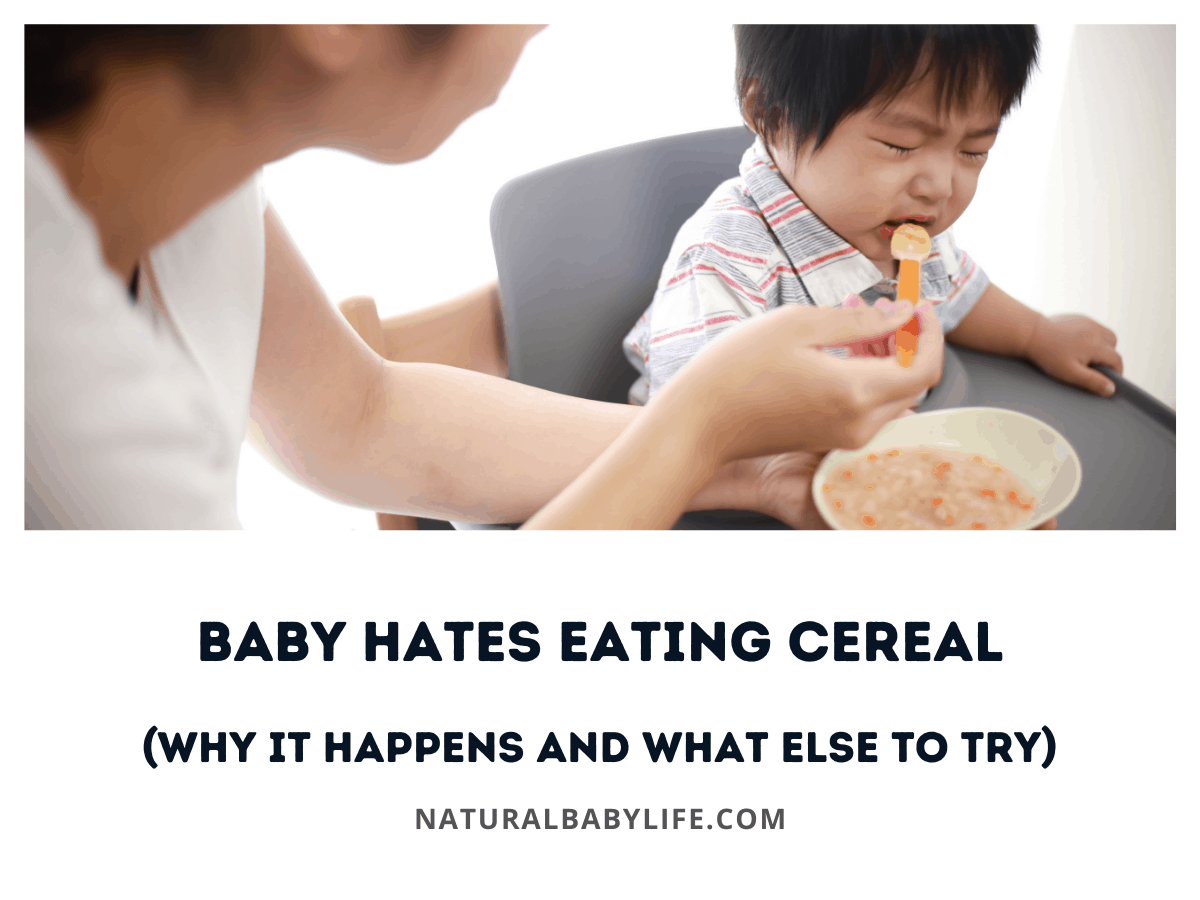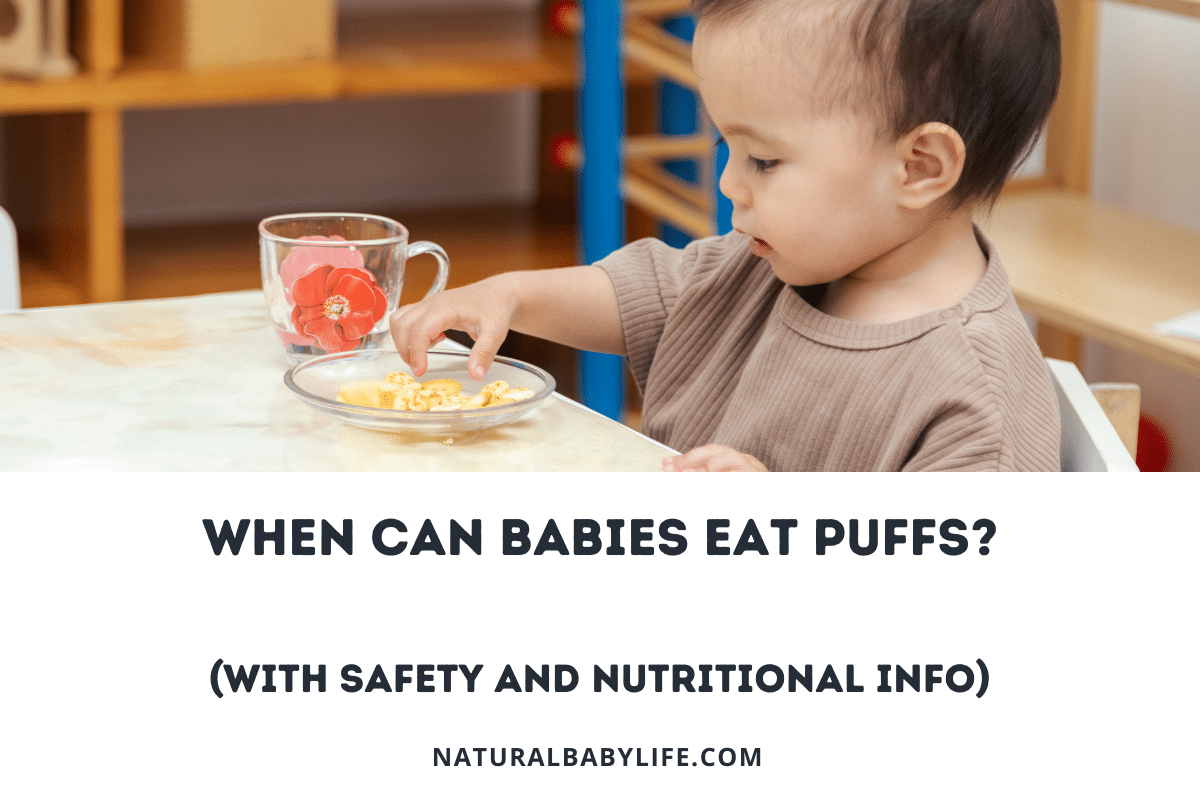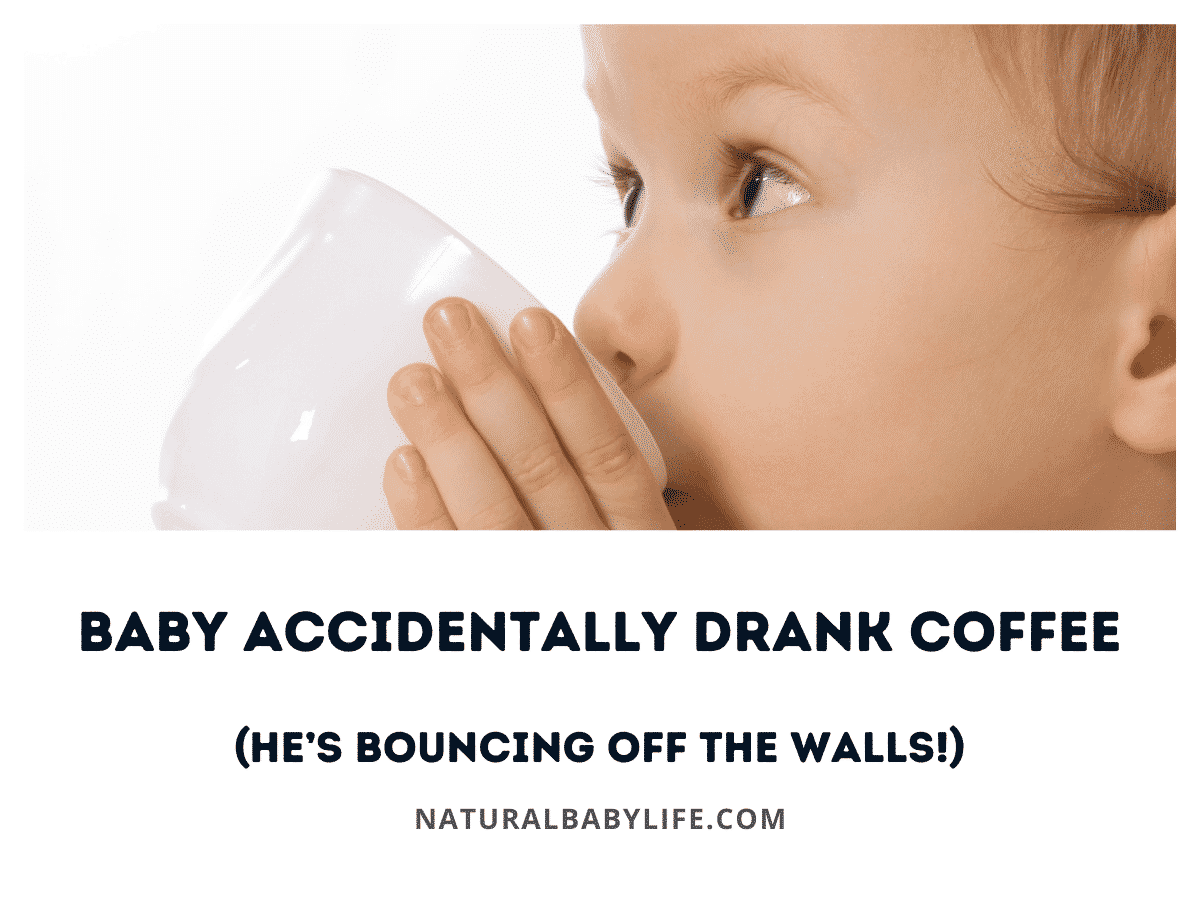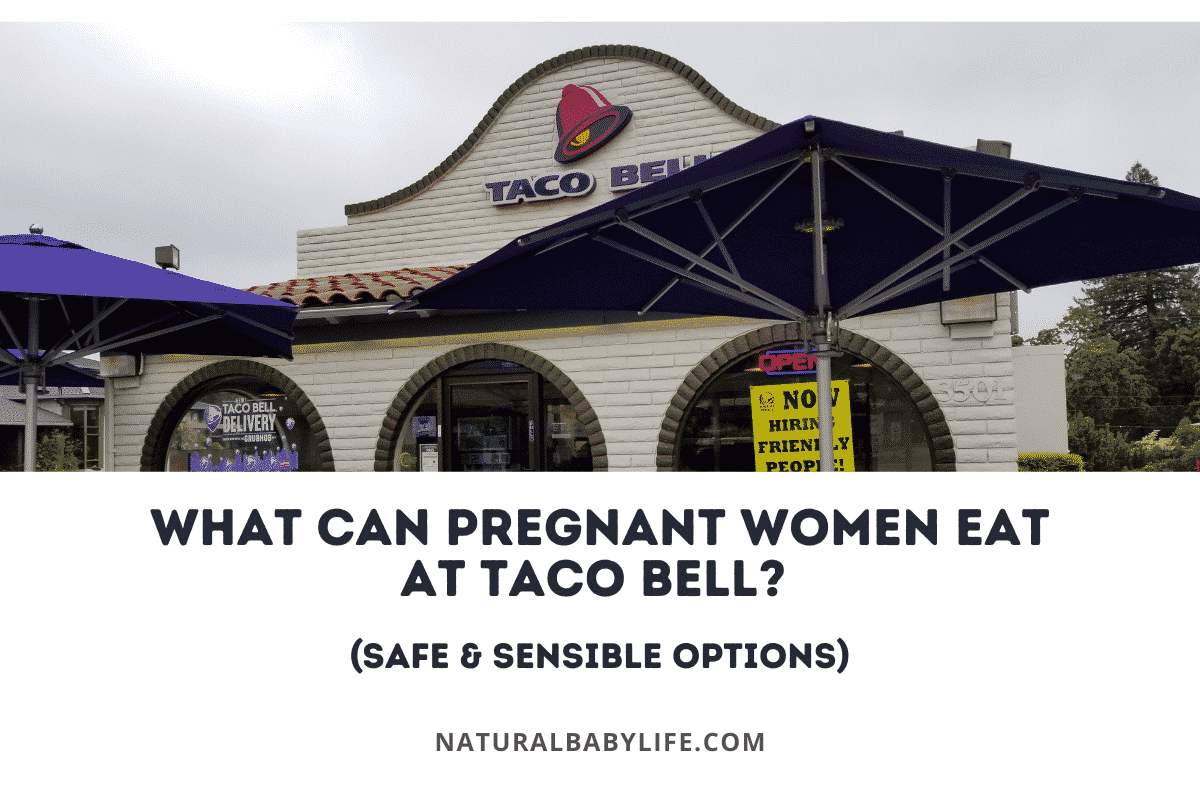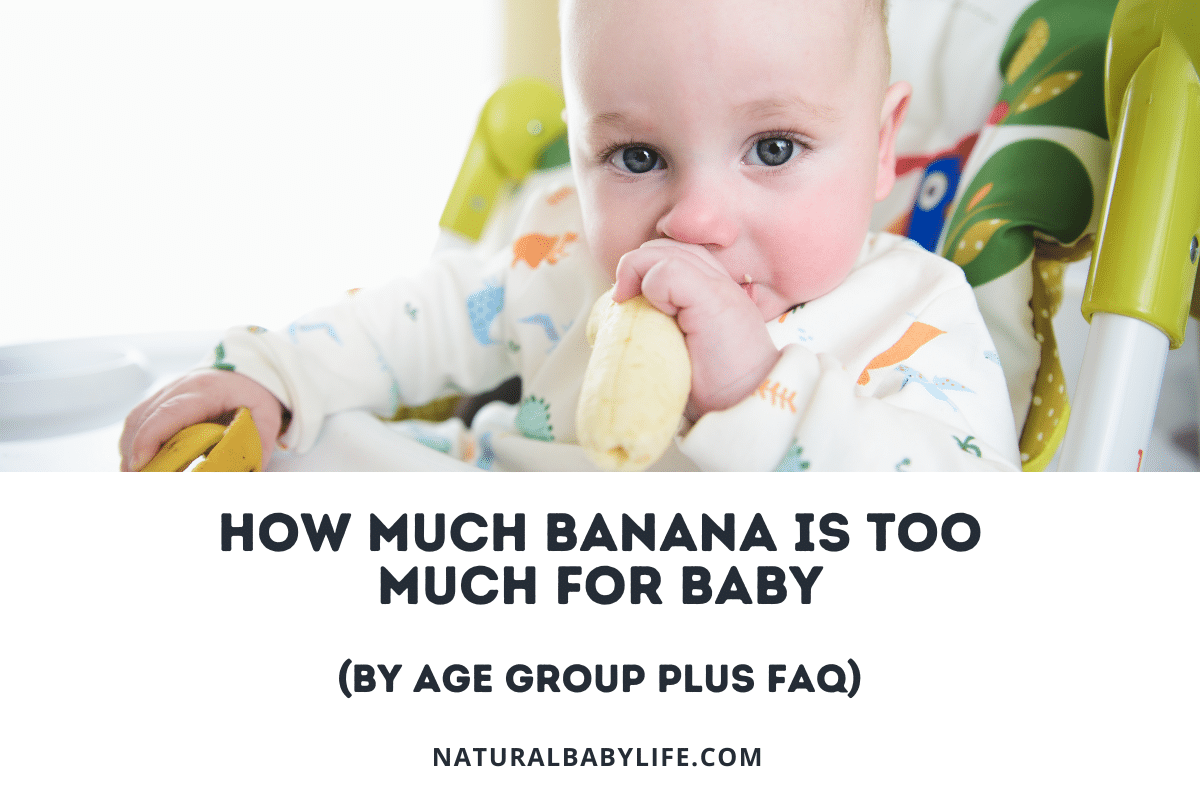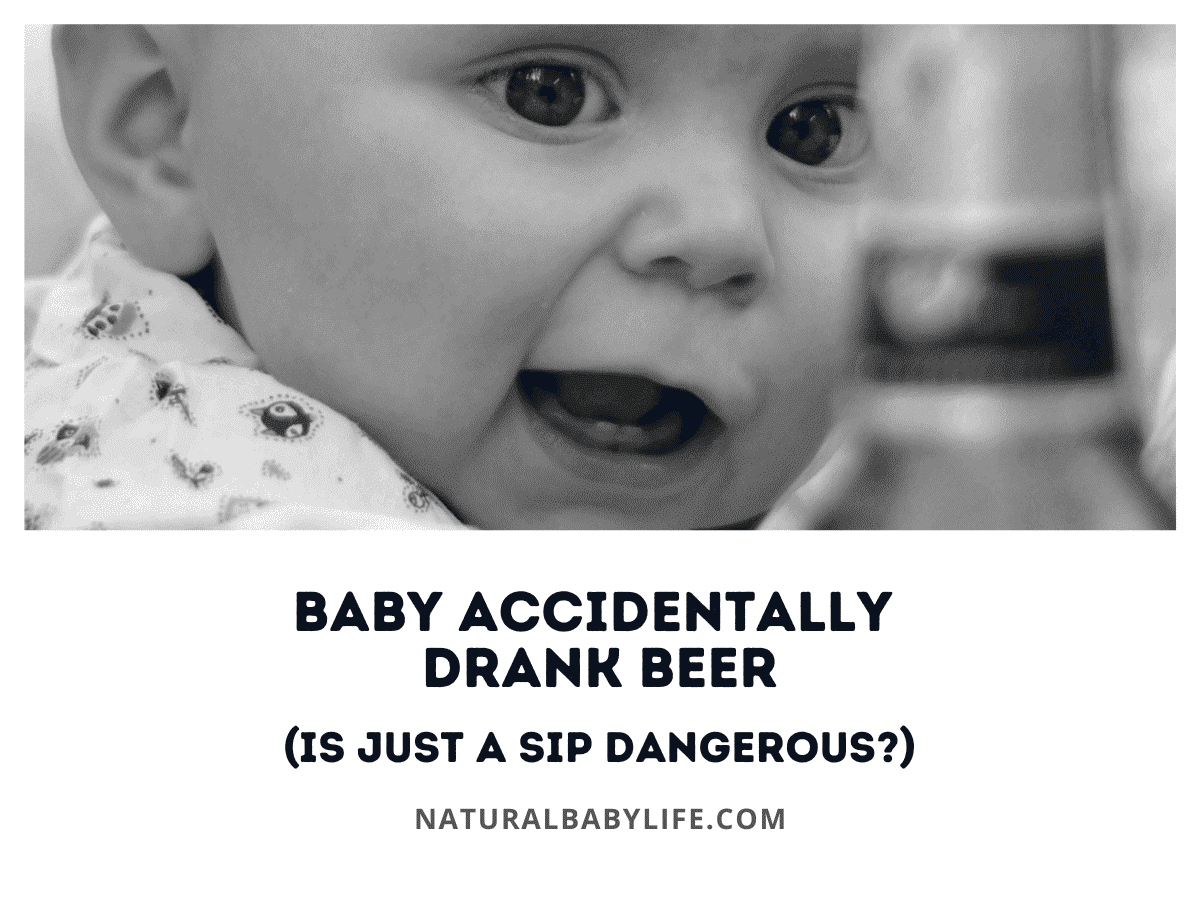Cereal is often a baby’s first solid food, but not it’s not love at first bite for every baby. While transitioning from breastmilk or formula to cereal is an exciting milestone for both parents and babies, it can take some time to find a cereal your baby tolerates and likes.
There are many reasons why a baby may not like cereal at first. She may not be ready for solids or may not like certain types of cereal. Even if your baby doesn’t like cereal there is no need to be discouraged, as there are many healthy options and alternatives. Eating solids is a new skill for your baby, and it is often a trial and error process.
You may be wondering why your baby doesn’t like cereal, when you can start feeding your baby cereal, and if babies actually need to eat cereal. Read on to learn more!
Table of Contents
Why doesn’t my baby like cereal?
Most babies are ready to eat cereal and pureed solids around the 6-month mark. However, not every baby likes cereal, especially at first.
Eating solid foods is a new skill for your baby, and it may take them some time to get used to the mechanics of eating, as well as the texture of the cereal. You will likely need to experiment to see what your baby prefers in terms of the type of cereal and consistency.
Babies can be finicky when it comes to eating, so if your baby rejects one type of cereal, you can always try a different cereal. Offer the first cereal again at a later date, as your baby may surprise you and actually like it the second time it is offered.
If your baby does not seem to like any cereal or other solid foods, it may be that your baby isn’t ready for them yet.
When can you start feeding a baby cereal?
While every baby’s development is different, most babies will be ready to try cereal when they are around 6 months, although some babies may be ready as early as 4 months. It’s important to remember that if a baby consistently rejects cereal, they may not be developmentally ready to eat it.
Here are some signs that your baby is developmentally ready to eat cereal:
- They can sit upright on their own, unsupported.
- They don’t have the tongue-thrust reflex, meaning they don’t push the cereal out of their mouth with their tongue,
- Your baby is interested in what you’re eating, and they may try to swipe food off your plate.
Note that you should never put cereal in a baby’s bottle. It adds a significant number of calories and can present a choking risk. It will not help your baby sleep better, and it will also not help with reflux. If your baby struggles with sleep or reflux, don’t hesitate to reach out to your pediatrician.
Rice cereal
Rice cereal is often a baby’s first food. If your baby is developmentally ready, you can try feeding them rice cereal around 6 months. Benefits of trying rice cereal first include its lack of potential allergens such as wheat, and its easiness to digest.
You can try mixing the cereal with breastmilk or formula, so that it tastes familiar to your baby, and you can control the consistency.
You may have read about recent concerns regarding arsenic levels in rice cereal. Arsenic is a naturally occurring element that is present in soil, air, and water. However, if arsenic levels are too high, they can negatively impact a baby’s development.
Fortunately, when the Food and Drug Administration (FDA) tested the arsenic levels in infant rice cereal, they found that the levels of arsenic were within normal limits. If you are concerned about arsenic levels in rice cereal, consult with your pediatrician, or simply feed your baby a different type of cereal.
Cheerios
Cheerios are certainly popular, and they are a food both you and your baby can enjoy together! Babies are generally ready to try dry Cheerios when they are around 8 months old.
Cheerios are free of the top eight allergens, and they are fairly easy for babies to digest, so they make a great first “finger food.” Whenever you give your baby Cheerios, be sure to stay at the table with them, as they can present a choking hazard.
Before trying Cheerios, make sure your baby can chew, and that they have developed the pincer-grasp so that they can successfully pick up the Cheerios.
Oatmeal cereal
Just like rice cereal, oatmeal cereal is a popular first food for babies, and you can try feeding your baby oatmeal cereal around the 6-month mark. It is easily digestible, and not likely to cause an allergic reaction. You can mix in breastmilk or formula so your baby recognizes some of the flavors, and you can adjust the consistency as needed.
If you have concerns about arsenic levels in rice cereal, know that you can likely skip rice cereal altogether and start with oatmeal cereal. It’s always a good idea to discuss your baby’s readiness for solids and their diet with your pediatrician.
Cereal in milk
If your baby has had their first birthday, has mastered eating rice or oatmeal cereal, and they have shown they can handle dry Cheerios, you can advance to experimenting with feeding your baby cereal in breastmilk or formula.
Be warned that this may be a messy proposition for all parties involved! Your baby will likely splash and dump bowls of cereal repeatedly.
Babies under the age of one should not be given any milk other than breastmilk or formula, as their gut is not yet able to digest cow’s milk. If you are concerned about allergens, stick to gluten-free cereals with minimal ingredients. If your baby shows any sign of an allergic reaction, or is fussy and upset after eating cereal, consult with your pediatrician.
How can I get my baby to eat cereal?
If your baby doesn’t seem to like cereal, know that this is likely temporary!
For the first six months of their life, your baby has been breast or bottle-fed, and learning how to eat from a spoon is a big change. It will take time for your baby to learn the art of eating solids, so don’t be discouraged if the first few times are disastrous.
You can always take a break from trying solids if it proves to be frustrating for both you and your baby. If your baby fusses, pushes food away, or cries, they simply might not be ready for solids. You may simply need to just give it time.
Babies are used to liquids, so if your baby seems to have trouble with the texture of the cereal, you can always thin it out with breastmilk or formula. Likewise, babies are used to warm breastmilk or formula, so you may need to warm up the cereal for your baby to be interested in it.
Just like adults, babies have taste preferences. If you try one type of cereal and your baby rejects it, you can always try a different kind. However, you should try to re-introduce the first cereal, because your baby may find they like it as they get older.
Can I skip giving my baby cereal?
Cereal does not have to be your baby’s first food! Some parents choose to skip cereal and start with pureed fruits or vegetables.
If you decide to start with pureed fruits and vegetables instead of cereal, you will want to stick to a single fruit or vegetable puree (not blends) until your baby shows that they are not having difficulty digesting the puree.
One reason many parents feed their babies cereal is because it is fortified with iron (as well as other vitamins and minerals), which babies need as they begin solids. If you are exclusively breastfeeding your baby, this is especially important. If you decide not to feed your baby cereal, talk to your pediatrician about how to make sure your baby gets the appropriate amount of iron through food or a supplement.
Whether you feed your baby cereal or pureed foods, they will still learn the mechanics of eating, including how to use their tongue, and how to chew and process food.
What do I do if my baby doesn’t like cereal?
Not all babies like traditional cereals, and that’s okay!
While many parents choose to feed cereal to their baby as their first food, there are a variety of healthy alternatives including pureed fruit and vegetables and simple finger foods.
Pureed Fruits and Vegetables
Whether you make your own baby food or buy it from the store, simple is best. Until you know how your baby reacts to baby food and how well they digest it, stick to a single fruit or vegetable puree before trying blends.
Pureed fruits and vegetables, or baby food, are great first foods for babies if you decide you want to skip cereal. If you have a blender or food processor, you can create purees at home (and even freeze them for later!). If you prefer to use baby food, there are a variety of brands with different fruits and vegetables and different textures such as avocado and banana!
Simple Finger Foods
Some parents opt to skip the cereal and baby food altogether and start their babies on solid food with simple finger foods such as soft fruits and vegetables such as sweet potatoes, bananas, or avocados.
If you decide to go this route, be sure that the food is soft enough for your baby to easily chew. You will also want to keep it simple, and not overseason the food, or combine too many foods together.
What You’re Eating
Babies are social creatures and they love to be involved in whatever you’re doing, and that includes eating! With some adjustments, your baby can likely eat whatever you’re eating, as long as it’s soft, not overly seasoned, and easily digestible.
Be sure to never give a baby honey or cow’s milk until after they turn one!
If you’re having pasta for dinner, try cooking some a little longer (to soften it up), and make a portion for your baby. The same goes for legumes such as beans or peas. Some babies love scrambled eggs, and strips of toast. You can even feed your baby meat! Ground beef, turkey, or lamb makes for a protein-filled meal.

